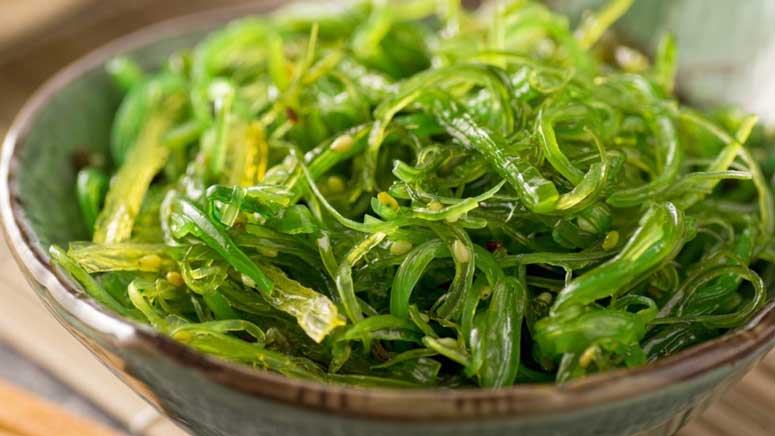It Helps with Thyroid Function

The thyroid gland is responsible for regulating and releasing hormones for energy synthesis, reproduction, cellular or tissue repair and growth. Regular consumption of seaweed helps the thyroid gland function properly. This gland requires iodine to function properly, but the quantity that a person requires depends on the condition of the thyroid. The recommended dietary intake (RDI) for iodine is 150 mcg per day.
Iodine deficiency is a major cause of hypothyroidism (reduced activities of thyroid). It causes development of goiter (an observable enlargement of the thyroid gland). It is possible to prevent hyperthyroidism by making sure their diets contain enough iodine. Seaweeds have a rare ability to absorb concentrated quantity of iodine from the ocean.
Hyperthyroidism happens when the thyroid gland [4] is overactive and produces excess number of hormones. Continuous intake of iodine can worsen the condition. Seaweed contains high amount of iodine. According to a research in the journal of food and drug analysis, kombu is the richest source of iodine, followed by nori and wakame. Kelp powder is also a great source of iodine. Just a teaspoon of dried kelp can contain 59 times the recommended dietary intake (RDI).
The type of seaweed, how it was processed and the condition in which it grew all affect the quantity of iodine present in it. One dried sheet of seaweed may possess 11-1,989 percent of the RDI. Seaweeds also contain an amino acid called tyrosine, and the thyroid gland requires it to function properly.
The average iodine content of three different dried seaweeds include:
- Nori: 37 mcg per gram (25 percent of the RDI)
- Wakame: 139 mcg per gram (93% of the RDI)
- Kombu: 2523 mcg per gram (1,682 percent of the RDI)













